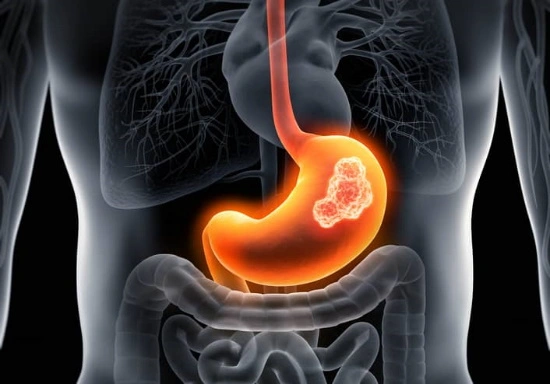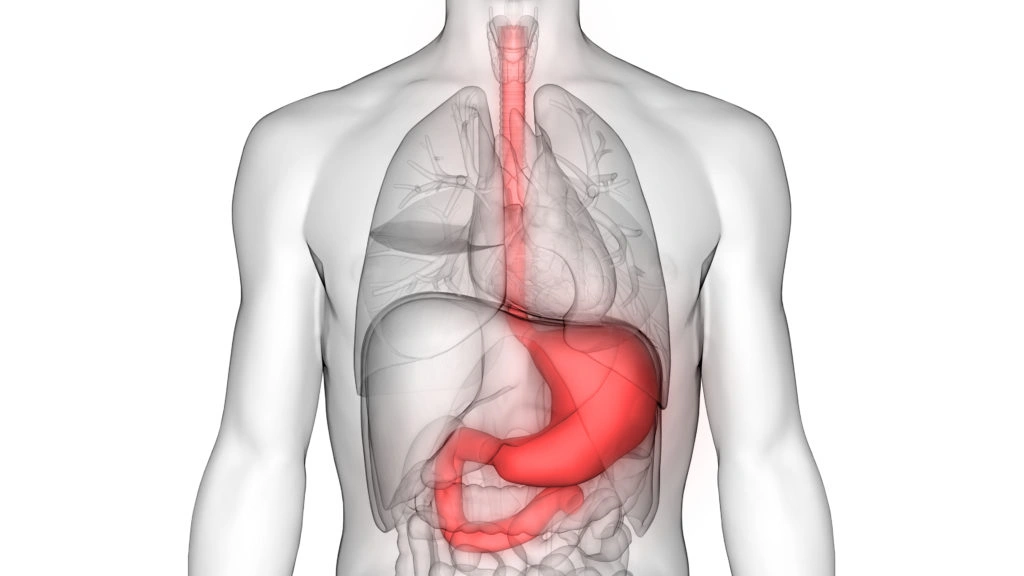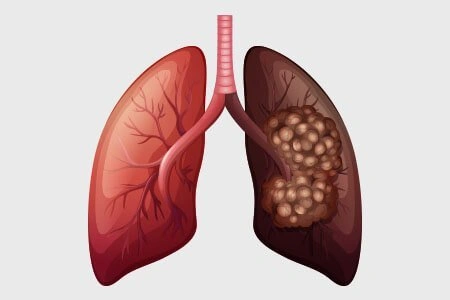Hereditary gastric cancer

If you tested your DNA with a personal genomics service like 23andMe, AncestryDNA, FamilyTreeDNA, MyHeritage or another testing company, you can learn more about your risk factors for hundreds of diseases. By clicking the button above ⬆️, you can upload your raw DNA data file and receive a personalized 250-page health report with research links that is the most comprehensive.
Gastric cancer is the third leading cause of cancer-related deaths worldwide, with a 5-year survival rate of only 20%. Although the majority of cases are sporadic, 1%-3% can be attributed to inherited cancer predisposition syndromes. In families with an autosomal dominant inherited predisposition to diffuse gastric cancer, germline E-cadherin/CDH1 mutations have been identified. The cumulative risk of developing gastric cancer for CDH1 mutation carriers by age 80 is 70% for men and 56% for women. Female mutation carriers also have a 42% risk of developing lobular breast cancer by age 80. However, not all individuals meeting clinical criteria for hereditary diffuse gastric cancer syndrome (HDGC) have a germline CDH1 mutation, and those who do may not exhibit similar clinical outcomes in terms of age of diagnosis or cancer types.
The following are environmental factors that increase the risk of developing gastric cancer:
Infection caused by Helicobacter pylori (H. pylori).
Regimen of food.
Diet has an impact on the regional differences in the incidence of gastric cancer.
The consumption of salt-preserved foods may elevate the likelihood of developing gastric cancer in individuals.
Elevated risk of gastric cancer may result from inadequate consumption of fruits and excessive consumption of processed, grilled, or barbequed meats/fish.
Effects of migration.
The risk of developing gastric cancer may also be influenced by the effects of migration, such as when individuals move from a region with a high risk of gastric cancer to one with a low risk, or vice versa.
Research has shown that the occurrence of gastric cancer among immigrants is highly associated with the occurrence of gastric cancer in their adopted country within one or two generations.
The utilization of tobacco.
Consumption of alcohol.
There is increasing evidence linking obesity to gastroesophageal reflux disease (GERD).
Disparities based on race and ethnicity.
Criteria for germline genetic testing are available for the genes linked to gastric cancer and/or gastric polyps, including CDH1, CTNNA1, APC, STK11, SMAD4, and the Lynch syndrome genes (MLH1, MSH2, MSH6, EPCAM).
Other genetic syndromes that increase the risk of gastric cancer will be examined, along with recently identified changes in other genes (CTNNA1, DOT1L, FBXO24, PRSS1, MAP3K6, MSR1, and INSR) that could impact susceptibility to gastric cancer and age-related penetrance.
Follow the link of the selected polymorphism to read a brief description of how the selected polymorphism affects Stomach cancer and see a list of existing studies.
SNP polymorphisms related to the topic Stomach cancer:
| rs4728142 | Validation of IRF5 as a multiple sclerosis risk gene: putative role in human herpes virus-6 infection. |
| rs2858331 | Together with the rs4988889 gene breakage, it is a diagnostic criterion for celiac disease. |
| rs2274223 | There is a 1.9 times increased risk of stomach and oesophageal cancer. |
| rs429358 | The APOE-E4 allele has a strong influence on the risk of developing Alzheimer's disease. One meta-analysis estimated the odds ratio for individuals homozygous for rs429358 to be 12 times higher for late-onset Alzheimer's disease and 61 times higher for early-onset disease. People with APOE4-4 allele C genotype should avoid eating animals raised on plants/grains that have higher levels of omega-6 compared to omega-3. It is advisable to practice vegetarianism to avoid all animal fats and measure the ratio of omega-3 to omega-6 in these people. Also, people with APOE 4 may do better on unmethylated forms of B12. |
| rs7501331 | Reduced conversion of beta-carotene to retinol. Supplemental retinol intake is recommended. |
| rs2236225 | Possible increased risk of fetal birth defects. A 1.5-fold higher risk for Caucasian mothers to give birth to children with DNT (neural tube defect). The association in children with this mutation with an increased risk of heart defects is greater if their mother did not get enough folic acid during pregnancy. The risk is reduced with adequate levels of folic acid and vitamin B6. |
| rs4072037 | Polymorphism affecting serum levels of magnesium, potassium and sodium. Also associated with risk of gastric cancer. |
| rs2294008 | Increased risk of stomach and bladder cancer. |
| rs162036 | Disorders of intracellular metabolism of cobalamin. Positive effect on the efficacy of folic acid therapy in patients with hyperhomocysteinaemia. |
| rs7576974 | |
| rs12112229 | |
| rs6504663 | |
| rs87938 | |
| rs8057927 | |
| rs11245936 | |
| rs28360974 | |
| rs10514585 | |
| rs7934606 | |
| rs3765695 | |
| rs2517415 | |
| rs3810936 | |
| rs2517416 | |
| rs3816587 | |
| rs11574514 | |
| rs2976392 | |
| rs2276330 | |
| rs33935154 | |
| rs16260 | |
| rs55819519 | |
| rs4074785 | |
| rs2071543 | |
| rs1045487 | |
| rs61756766 | |
| rs9357155 | |
| rs1518111 | |
| rs1800896 | |
| rs3024493 | |
| rs763110 | |
| rs4561508 | |
| rs4985726 | |
| rs2234978 | |
| rs3731249 | |
| rs2834167 | |
| rs735299 | |
| rs6924102 | |
| rs9276810 | |
| rs1800871 | |
| rs2157453 | |
| rs229527 | |
| rs3024490 | |
| rs4273077 | |
| rs3754935 | |
| rs3731217 | |
| rs1800682 | |
| rs3731211 | |
| rs140501787 | |
| rs4783244 | |
| rs7551188 | |
| rs1607237 | |
| rs2236851 | |
| rs870995 | |
| rs11706842 | |
| rs113613074 | |
| rs63750123 | |
| rs35831931 | |
| rs231775 | |
About The Author
Li DaliLi Dali, a National Foundation for Outstanding Youth Fund recipient, is a researcher at the School of Life Sciences in East China Normal University. He earned his PhD in genetics from Hunan Normal University in 2007 and conducted collaborative research at Texas A&M University during his doctoral studies. Li Dali and his team have optimized and innovated gene editing technology, leading to the establishment of a world-class system for constructing gene editing disease models.


